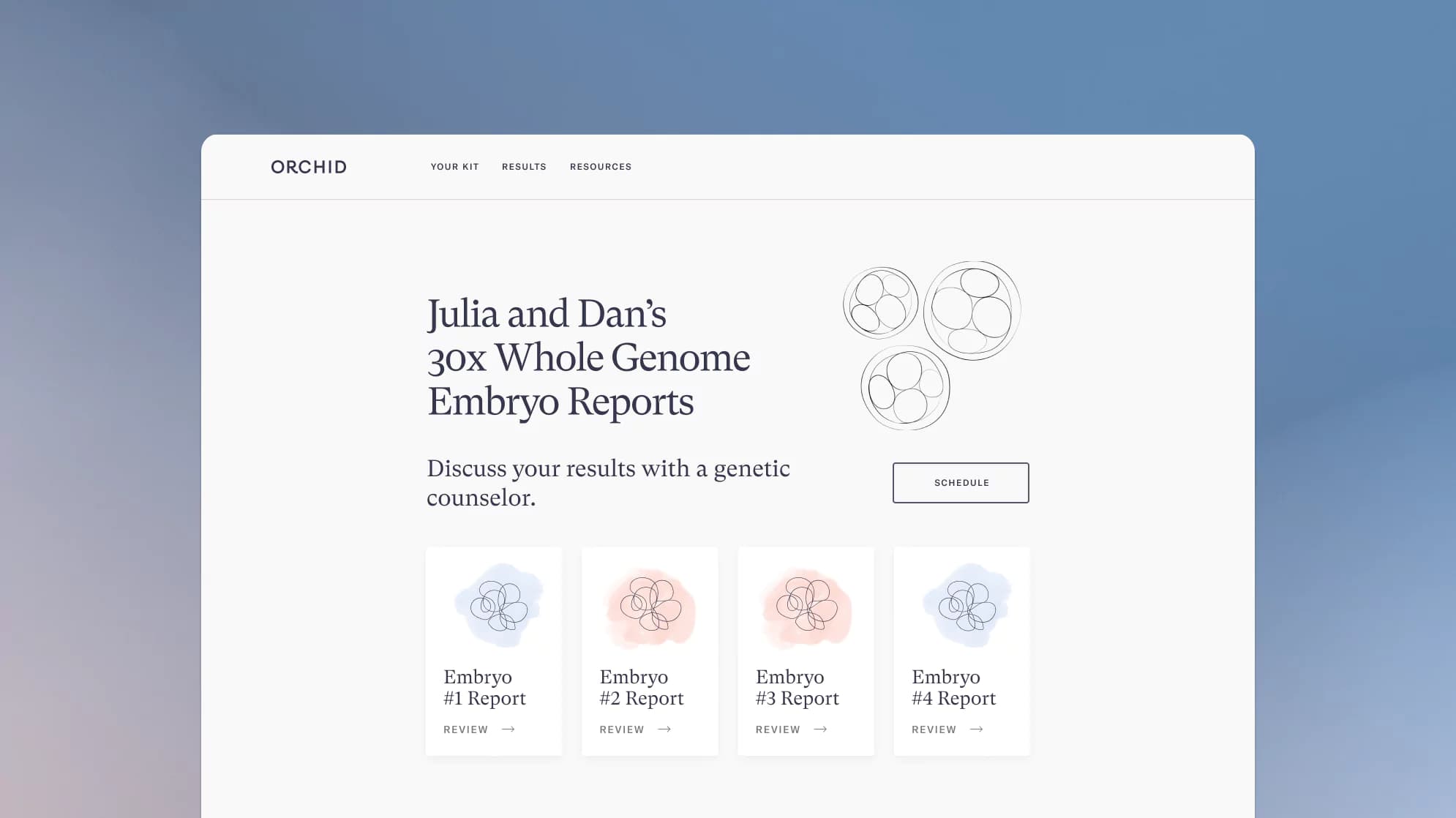Orchid's Advanced Embryo Screening Offers Extensive Genetic Risk Assessment at $2,500 Per Embryo

Silicon Valley-based company Orchid, founded by Noor Siddiqui, is at the forefront of a burgeoning field, offering comprehensive genetic screening for embryos to prospective parents. The company aims to provide unprecedented insights into a future child's health, enabling the selection of embryos with the lowest risk of developing genetic diseases. This technology is sparking both enthusiasm and intense ethical debate within the fertility and bioethics communities.
Orchid's service, priced at $2,500 per embryo, utilizes whole-genome sequencing to analyze embryos created through in-vitro fertilization (IVF). It screens for over 1,200 monogenic conditions—diseases caused by a single gene mutation, such as certain birth defects and pediatric cancers. Additionally, the company assesses polygenic risk scores for 12 to 15 complex conditions like heart disease, schizophrenia, and diabetes, which are influenced by multiple genes.
Noor Siddiqui, CEO of Orchid, was personally motivated to found the company after witnessing her mother's progressive vision loss due to retinitis pigmentosa, a condition Orchid now screens for. Siddiqui advocates for the widespread adoption of such screening, asserting that it is "unethical to stigmatize choosing screening" and envisions a future where IVF and comprehensive embryo testing become the standard for ensuring healthy offspring.
The technology, however, has ignited significant ethical discussions. Critics voice concerns about the potential for "designer babies," the creation of a genetic caste system, and the moral implications of discarding embryos based on genetic profiles. Questions also persist regarding the accuracy and potential biases of polygenic risk scores, particularly for non-European ancestries, given that much of the underlying data is derived from European populations.
Despite the controversy, Orchid has established partnerships with over 40 IVF clinics nationwide, attracting a diverse clientele ranging from individuals with a family history of severe genetic disorders to those seeking to optimize their future children's health. Prominent figures, including Elon Musk, have reportedly utilized Orchid's services, further amplifying the conversation around advanced genetic selection.
The ongoing public discourse is encapsulated in recent social media exchanges. Jordan Thibodeau, a vocal supporter, tweeted to Noor Siddiqui, stating,
ignore the haters. If they knew their kid would be born with a genetic disease that would cause their baby to die months after birth, they would in a heartbeat pick another embryo or push for crispr. A lot these folks are playing internet tough guys and virtue signalling. Keep up the good work. This highlights the strong convictions on both sides of the debate surrounding the proactive use of genetic technology to prevent inherited suffering.
The future trajectory of comprehensive embryo screening remains a subject of intense discussion, balancing scientific advancements with profound societal and ethical considerations. As technology continues to evolve, the conversation around the responsible application of genetic insights in family planning is set to intensify.